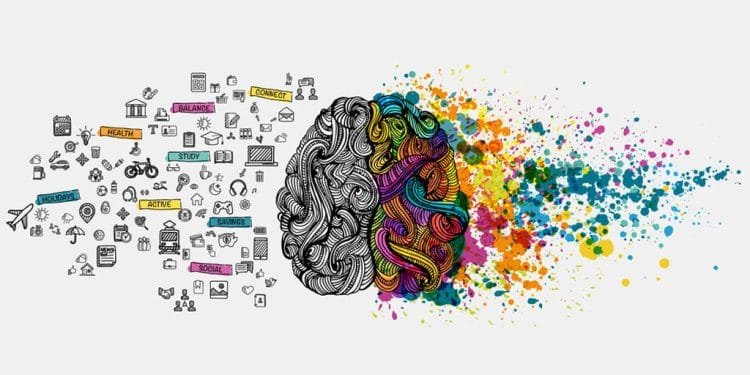[ad_1]
Empathy Workouts: Strengthening Connections Through Compassionate Practices
In today’s fast-paced world filled with distractions and demands, it can be easy to lose touch with our ability to connect deeply with others. We often find ourselves focused on our own needs and desires, neglecting the importance of empathy and understanding. However, empathy is a crucial component of healthy relationships and essential for fostering genuine connections with others. Just like physical workouts strengthen our muscles, empathy workouts can help strengthen our ability to empathize with others and build stronger connections.
The Importance of Empathy
Empathy is the ability to understand and share the feelings of another person. It allows us to put ourselves in someone else’s shoes, see the world from their perspective, and connect on a deeper level. Empathy is essential for effective communication, conflict resolution, and building trust in relationships. Without empathy, misunderstandings can arise, leading to conflict and disconnect.
Research has shown that practicing empathy not only improves our relationships with others but also has numerous benefits for our own well-being. When we empathize with others, we feel more connected, reduce stress levels, and increase feelings of happiness and fulfillment. Empathy also helps us develop a greater sense of understanding and compassion for others, fostering a sense of unity and community.
Empathy Workouts: Strengthening Your Empathy Muscles
Just like physical workouts, empathy workouts involve intentional practices that help us strengthen our ability to empathize with others. These exercises can be simple yet powerful tools for developing greater empathy and fostering deeper connections with those around us. Here are some empathy workouts to try:
Active Listening
One of the most effective ways to show empathy is through active listening. This involves fully engaging with the speaker, paying attention to their words, body language, and emotions, and showing that you understand and care about what they are saying. Avoid interrupting or offering advice and instead focus on being fully present and attentive to the other person’s experience.
Reflective Questioning
Reflective questioning involves asking open-ended questions that encourage the speaker to reflect on their thoughts and feelings. This helps deepen the conversation, foster understanding, and show that you are genuinely interested in their perspective. By asking thoughtful questions, you can demonstrate empathy and create opportunities for deeper connection.
The Benefits of Empathy Workouts
Engaging in empathy workouts has a wide range of benefits for both individuals and relationships. By strengthening our empathy muscles, we can improve our communication skills, resolve conflicts more effectively, and build stronger connections with others. Empathy workouts also help us cultivate a greater sense of compassion, understanding, and emotional intelligence, leading to more fulfilling and meaningful relationships.
Additionally, practicing empathy can have positive effects on our mental and emotional well-being. By connecting with others on a deeper level and showing compassion and understanding, we can reduce stress, increase feelings of happiness and fulfillment, and improve our overall quality of life. Empathy workouts not only benefit those around us but also enhance our own sense of well-being and connection.
Common Questions About Empathy Workouts
What is the difference between sympathy and empathy?
Sympathy involves feeling sorry for someone else’s pain or suffering, while empathy involves understanding and sharing their feelings. Sympathy is more passive and detached, while empathy is active and engaged. Empathy is about connecting on a deeper level and seeing the world from someone else’s perspective.
How can I improve my empathy skills?
Improving empathy involves practicing active listening, reflective questioning, and putting yourself in someone else’s shoes. By engaging in empathy workouts and intentionally focusing on understanding and sharing the feelings of others, you can strengthen your empathy muscles and build stronger connections with those around you.
Why is empathy important in relationships?
Empathy is crucial in relationships because it helps foster understanding, trust, and connection. By empathizing with your partner, friends, family members, or colleagues, you can build stronger bonds and resolve conflicts more effectively. Empathy also helps us feel more connected, reduce stress levels, and increase feelings of happiness and fulfillment in our relationships.
In Conclusion
Empathy workouts are powerful tools for strengthening connections through compassionate practices. By engaging in exercises that cultivate empathy, such as active listening, reflective questioning, and putting yourself in someone else’s shoes, you can improve your communication skills, resolve conflicts more effectively, and build stronger connections with those around you. Empathy not only benefits your relationships but also has positive effects on your mental and emotional well-being. By practicing empathy, you can foster understanding, compassion, and unity in your relationships and lead a more fulfilling and connected life.
Start incorporating empathy workouts into your daily routine and watch as your connections with others deepen and your sense of well-being grows.
Remember, empathy is a muscle that needs to be exercised regularly to stay strong and healthy. By making empathy a priority in your interactions with others, you can cultivate deeper connections, foster understanding, and create a more empathetic and compassionate world.
[ad_2]




